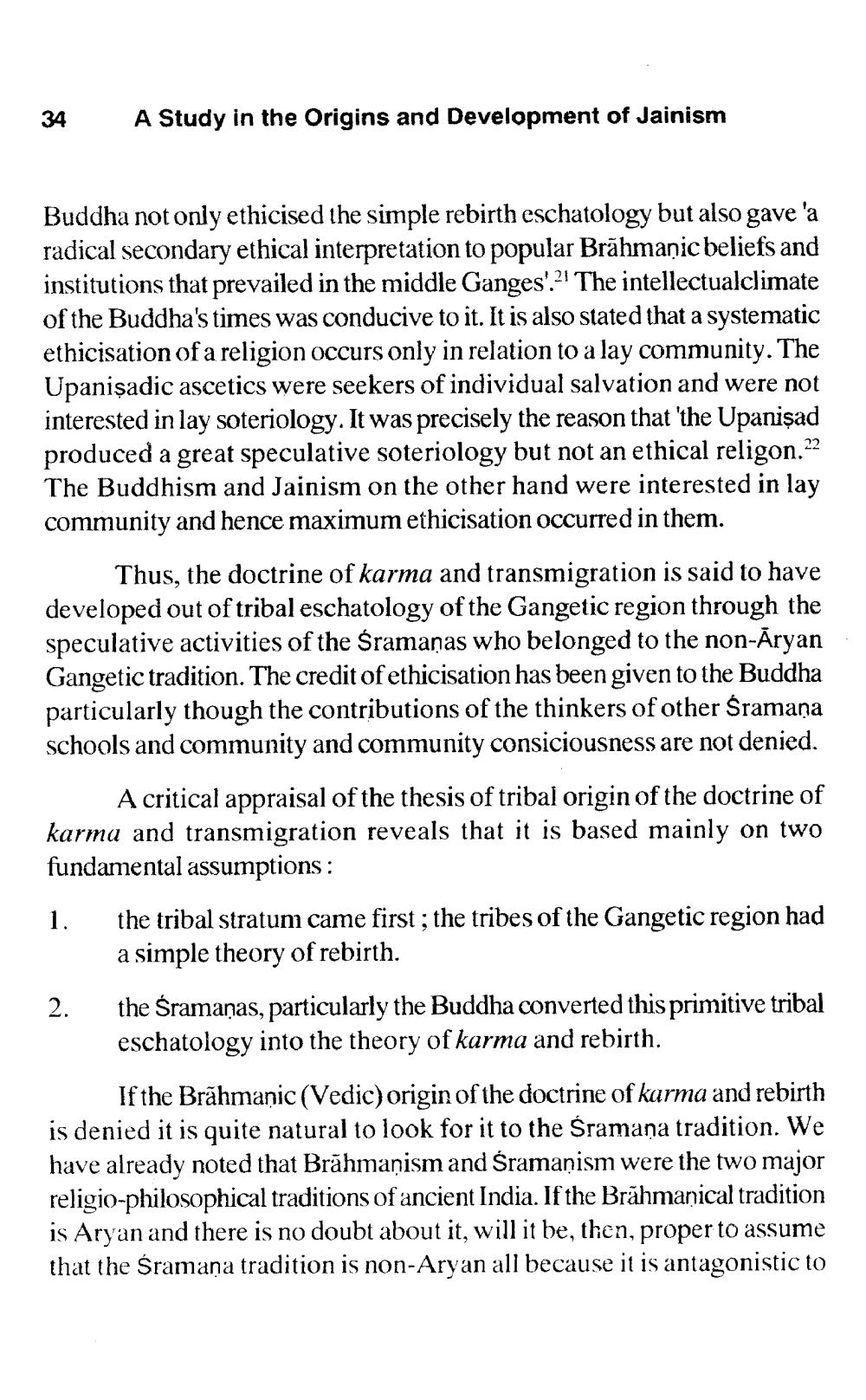________________
34
A Study in the Origins and Development of Jainism
Buddha not only ethicised the simple rebirth eschatology but also gave 'a radical secondary ethical interpretation to popular Brāhmanic beliefs and institutions that prevailed in the middle Ganges'.21 The intellectualclimate of the Buddha's times was conducive to it. It is also stated that a systematic ethicisation of a religion occurs only in relation to a lay community. The Upanişadic ascetics were seekers of individual salvation and were not interested in lay soteriology. It was precisely the reason that 'the Upanişad produced a great speculative soteriology but not an ethical religon.22 The Buddhism and Jainism on the other hand were interested in lay community and hence maximum ethicisation occurred in them.
Thus, the doctrine of karma and transmigration is said to have developed out of tribal eschatology of the Gangetic region through the speculative activities of the Śramaņas who belonged to the non-Aryan Gangetic tradition. The credit of ethicisation has been given to the Buddha particularly though the contributions of the thinkers of other Śramaņa schools and community and community consiciousness are not denied.
A critical appraisal of the thesis of tribal origin of the doctrine of karma and transmigration reveals that it is based mainly on two fundamental assumptions : 1. the tribal stratum came first; the tribes of the Gangetic region had
a simple theory of rebirth.
2.
the Śramaņas, particularly the Buddha converted this primitive tribal eschatology into the theory of karma and rebirth.
If the Brāhmanic (Vedic) origin of the doctrine of karma and rebirth is denied it is quite natural to look for it to the Śramana tradition. We have already noted that Brāhmaṇism and śramanism were the two major religio-philosophical traditions of ancient India. If the Brāhmanical tradition is Aryan and there is no doubt about it, will it be, then, proper to assume that the Śramana tradition is non-Aryan all because it is antagonistic to




